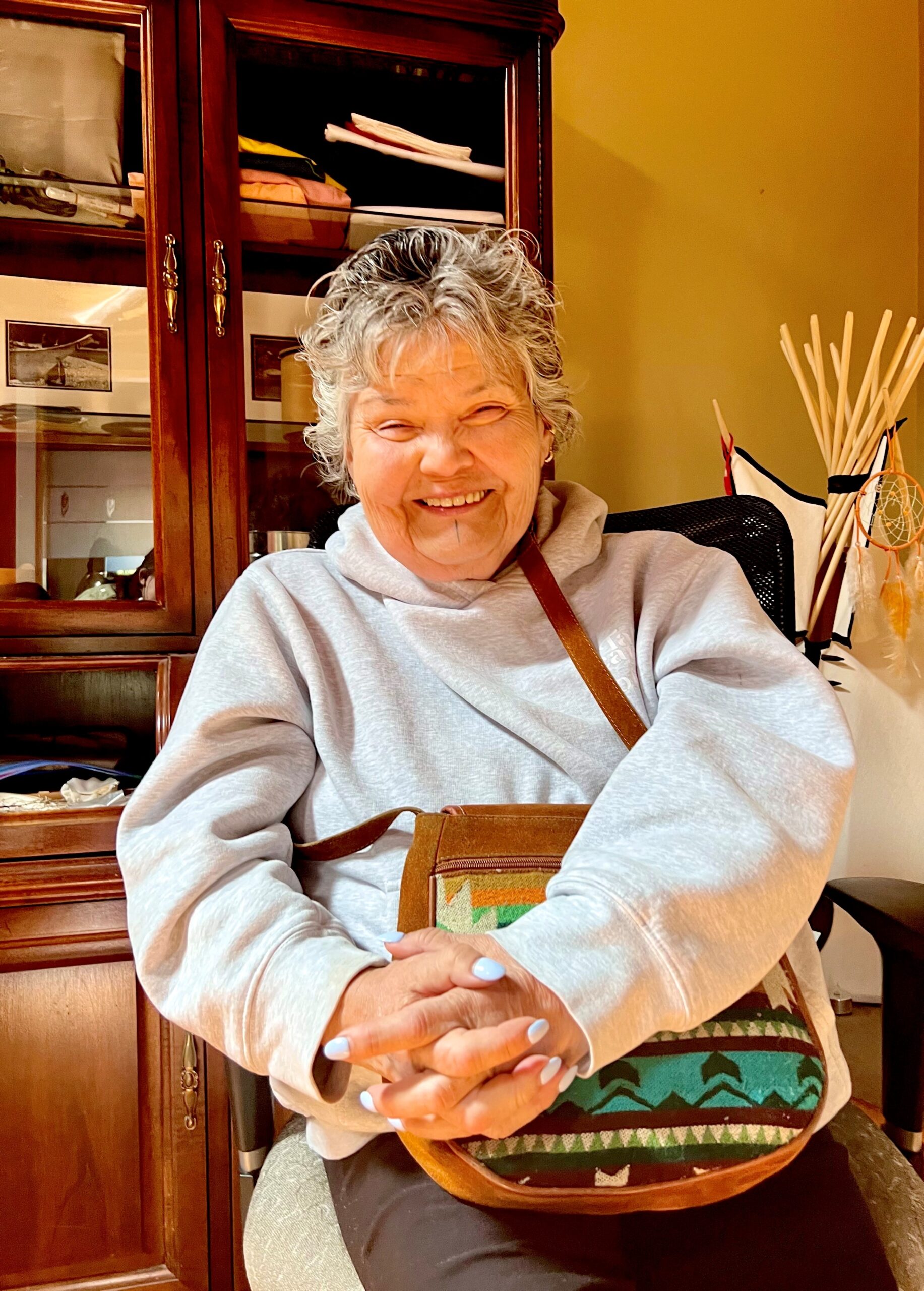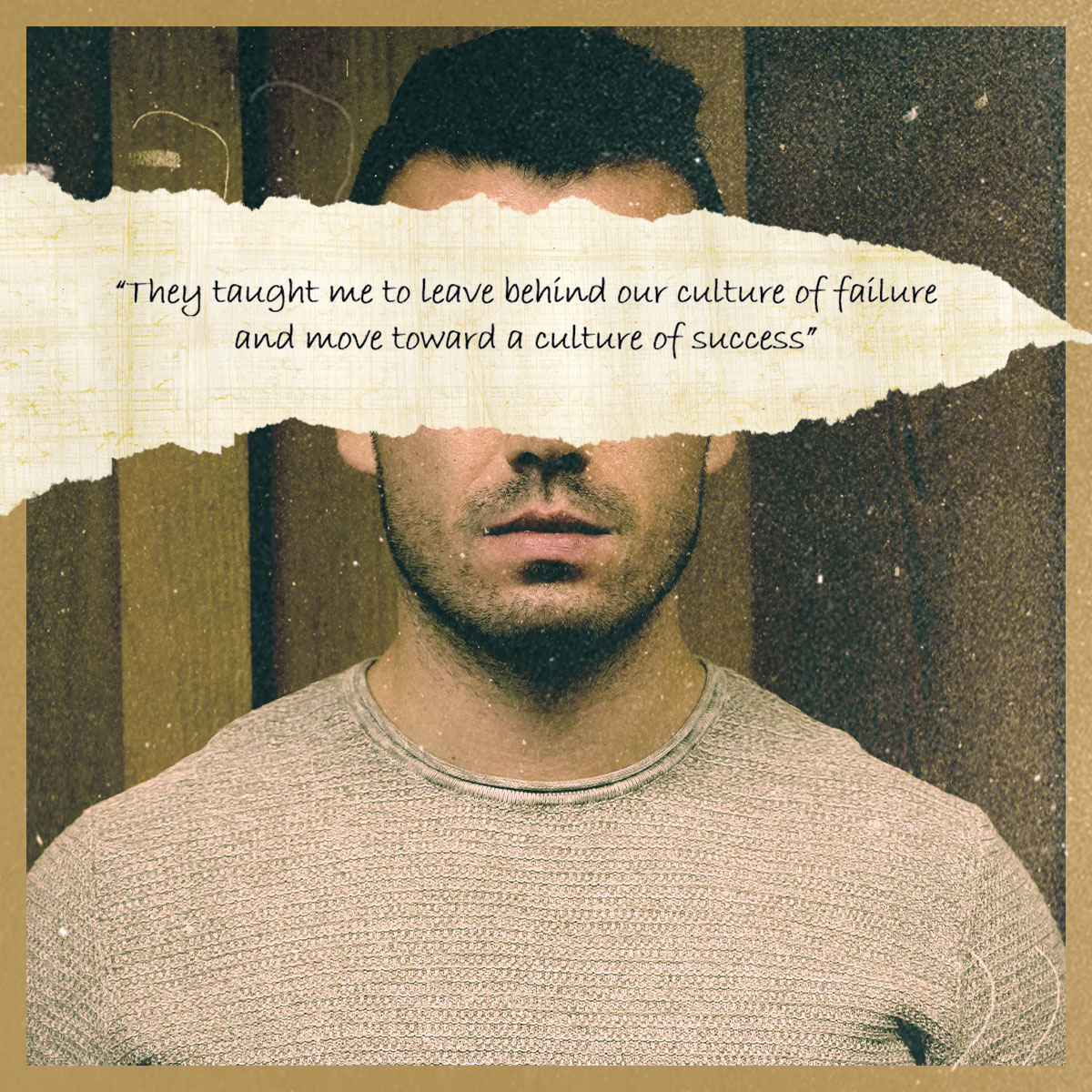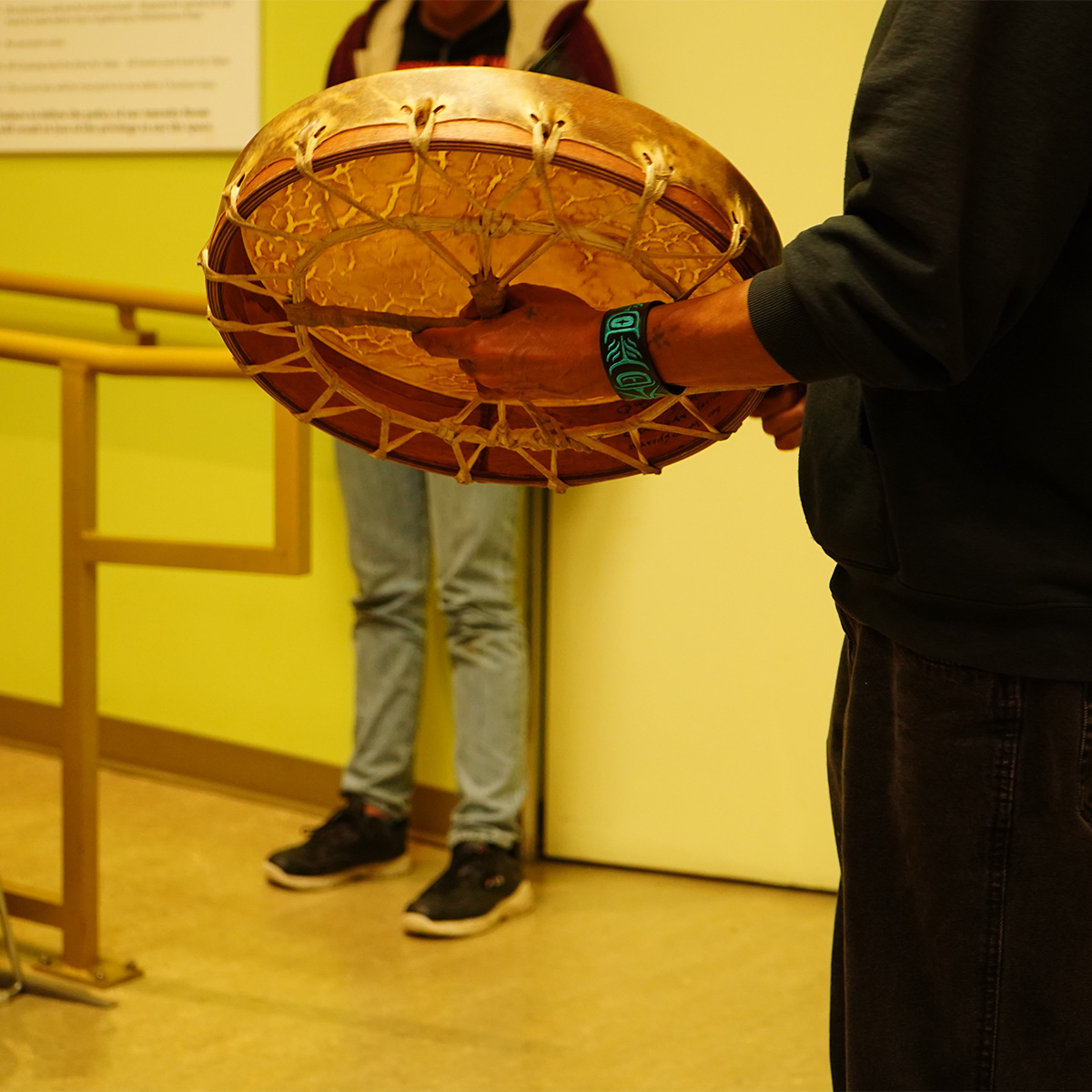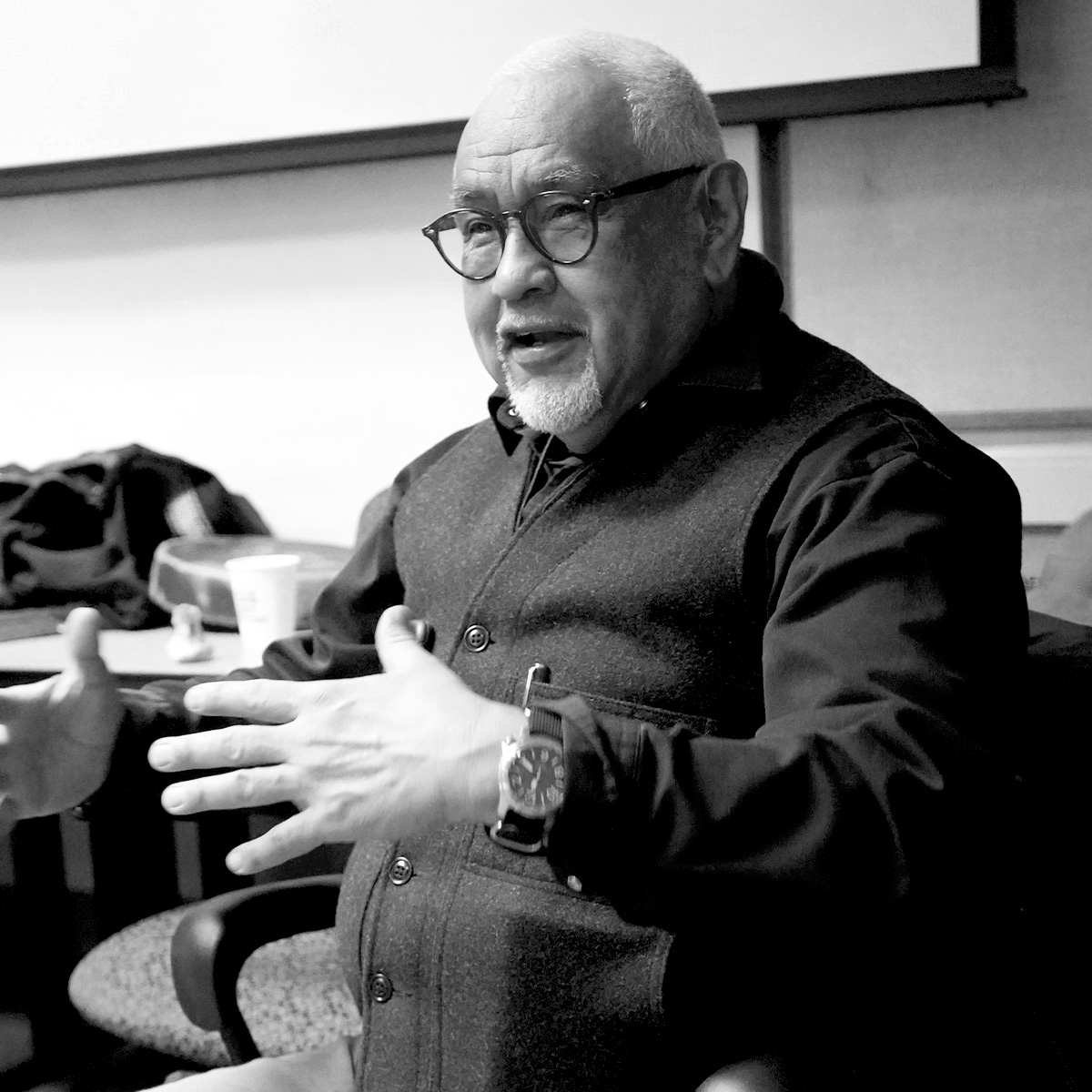Watch our interview with April as she talks about her experiences working with youth in care.
Interview by: Angela Shen and Rajshree Radadiya
Transcribed by: Rajshree Radadiya
Edited by: Angela Shen and Diana Smith
What is your name and background?
My name is April Josephine Bennett. Initially, I worked directly with families in a different organization. My Indigenous background I found later in my life, finding my mother, who was a Beaver, along with my grandmother on the matriarch side. On my patriarch side, our community was displaced due to the flooding of Williston Lake. Some resettled in Fort Ware and Moberly Lake. Part of my family is registered at West Moberly Lake. My father and I, coming through in the 80s, registered under my mother’s side at Kwadacha, formerly Fort Ware, because of adoption.
How many years have you been with VACFSS?
I joined VACFSS on July 1st, 1995. I was hired on by members of the community who I knew, and I have worked closely with Wally Rupert for about 20 years. He hired me to fulfill a role that was being called a “cultural worker.” I believe the executive director of VACFSS, along with the Ministry, was looking for someone to support the Indigenous children in Care. That is how I joined the team, almost 30 years ago.
How has your role changed since you first arrived at VACFSS?
Before, I had a committee with two social workers from the Ministry, a person in the community, and a person in VACFSS who helped me understand my role in cultural work. The benefit I had at that time was I began using the medicines in my practice as my father spiritually handed me the medicine bag. So, I started gathering my medicine bundle from different places, and some parts of it were gifted. The other benefit I had was being brought up in Care. So, I understood some of the things children and families were going through.
What are some of the highlights you have experienced working with children and staff in your role?
There are so many highlights. When I was first hired, I was more in the community, organizing events, and teaching cultural activities like beading and dreamcatcher making. I asked all the neighborhood houses in Vancouver if we could put on events in their neighborhood house, and most of them said yes. I think I have made thousands of dreamcatchers with children and community members since I have been here. I recall facilitating dreamcatcher workshops that attracted participants from France, Japan, and Sweden, all eager to learn and connect with Indigenous culture. So, we explained what it was for and about Grandmother Spider. They were just so elated to make these things, and they made beautiful dreamcatchers in different colours. I remember doing all that.
How does your work culturally empower families and youth? How would you describe the experience?
I have worked with families for over 10 years before VACFSS, and I loved it. I have worked for ages 5 and under to a baby. I have witnessed the power of positive interactions and role modelling. Many caregivers that I was working with initially struggled to understand the role of play. But, if you do not know how to play or how to be with a baby or a little child, it is very difficult. So, you had to role model. There was a lot of role modelling that I would do in playing with children and interacting with them, and letting them stay positive in their little worlds. By creating supportive and comfortable environments, children would naturally come around and sit down to witness what is going on. So, the one thing you need is a lot of love, not just for children but the adults, including caregivers and everybody around you. You need love in your heart to make sense of the world sometimes.
What advice would you give to Caregivers and social workers working with children?
Most of us when we start somewhere, we have an idea of why we are there. Caregiving to me, it’s about caring and giving and these words say a lot more than just two words. You need open hearts for children; many of our children are experiencing moves, and somewhere there, things get lost. It would be nice to hold a ceremony or, say a luncheon for the child and the people who take care of them. To let the child know that we are there, we carry you in our hearts, we care about you, we want you to be the best that you can. To connect with the child’s emotions. To be as positive as you can and listen. Listening is important for children; they know when you are listening as it is validating.













